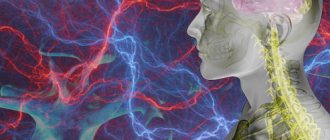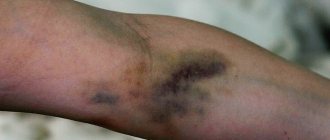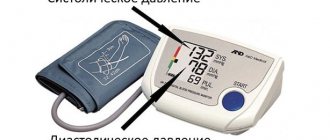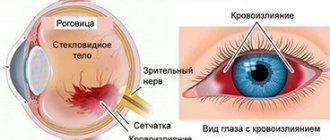12 April 2021
39267
0
3.2 out of 5
Numbness or hypoesthesia of the fingers is a rather unpleasant situation, which can be either a consequence of physiological reasons or a sign of various types of diseases. Therefore, if this symptom persists for an hour or more, and there is no improvement in rubbing your hands, clenching and unclenching your fists, you should consult a doctor. He will help you understand the reasons for its appearance and, if necessary, prescribe the necessary treatment. This will be the key to detecting pathology at an early stage of development and the success of therapy, and will also help to avoid aggravation of the situation and eliminate the risk of complications. After all, it is not so much the numbness of the fingers that is dangerous, although it can cause significant difficulties in performing everyday tasks, but the consequences of the lack of treatment for the diseases that provoked its occurrence.
Why do my hands go numb?
Doctors believe that if a person is young, the cause is in the nervous system, and if an elderly person, it is in the blood vessels or endocrine system.
Are common
In most cases, both hands may go numb due to illness.
Household
The reasons for numbness are simple - a person sat in an uncomfortable position, which pinched the nerves and blood vessels. This disrupted blood flow and impulse transmission. This occurs most often in the following cases:
- The man raised his arms above his chest.
- He was carrying a heavy bag.
- Wears tight clothes.
- Performs work manually.
- Sleeps on one side.
If negative factors are eliminated in a timely manner, the discomfort will also disappear. But if it becomes a habit, chronic diseases may appear.
Problems with the circulatory system
Blood enters the arms through the aortic arches, passing through the chest cavity. The following arteries are found in the arm:
- Radial.
- Elbow.
- Palmar.
There are many small vessels in the palm. And if some stop functioning, others replace them. If the body is healthy, sensitivity will be restored quickly.
But if pathologies are present, some symptoms last a long time. Vascular thrombosis is considered a dangerous disease. If the blood clot is in the artery that supplies the arm, the person will lose sensation from the fingers to the entire arm.
Numbness may result from vascular aneurysms. These are small formations that fill with blood, pinching the nerves. Another disease is vasopathy or angiopathy. The tone of the vascular walls decreases, the lumen narrows, and blood circulation is disrupted. This causes ischemia. The tissues that feed from these vessels lack oxygen.
Lack of vitamins
Numbness may occur if the body does not have enough vitamin B or minerals. At the same time, a person quickly gets tired, and his memory deteriorates. And if there is not enough vitamin A and E, the performance of bone marrow cells is impaired, and the development of red blood cells and other blood cells slows down.
Atherosclerosis
This is a disease in which cholesterol accumulates in the blood vessels. Lipids do not allow normal blood circulation. The symptoms of the disease are as follows:
- Cramps when relaxing.
- Insomnia.
- Itching and burning.
Hands look pale and nails become thicker. Hair density decreases.
Raynaud's disease
A common disease in women. The small arteries of both arms are affected. The disease usually occurs in car drivers and pianists.
Numbness appears as a result of spasms in the blood vessels. The skin turns pale, becomes colder, and sensitivity worsens. As soon as the spasm passes, the skin returns to its original state. But relapses are possible, sometimes every day.
Herniated discs
This can also be a cause of numbness. If a person experiences numbness in his fingers, changes occur in the neck area. There are signs by which a hernia can be identified:
- Arms and shoulders hurt.
- Blood pressure rises.
- My head is spinning.
Metabolism problems
Typically the causes are the following diseases:
- Diabetes.
- Cholesterol deposition.
- Lack of calcium and potassium.
In the latter case, bruises appear on the person’s body, and the wounds do not heal well.
Nerve problems
The hands have many nerves that control sensation. The system contains the following nerves:
- Elbows.
- Radiation.
- Musculocutaneous.
- Axillary.
- Median.
If nerve function is impaired, impulses are transmitted more slowly. There may also be pain in the arm or a burning sensation.
Carpal tunnel syndrome
Neuralgic disease, when the fingers go numb and the hand hurts. The cause of the disease is compression of the median nerve between the elements that form the wrist and hand. Often found in older women.
Diabetic neuropathy
Another disease that causes numbness in your hands is diabetes. At the same time, a person may feel tingling in the limbs, cramps, and muscle weakness. Sometimes severe pain appears in the muscles, similar to an electric shock.
Osteochondrosis
When the spinal cord nerves are compressed, numbness may occur.
Stroke
If a cerebral artery ruptures or thrombosis occurs, there is a risk of stroke. Usually a person loses sensitivity in the limb for which the damaged hemisphere is responsible. First, the little finger and ring finger go numb. A stroke can also be identified by other symptoms:
- Muscle weakness.
- Difficulty breathing.
- Incomprehensible speech.
- Deterioration in coordination of movements.
- Dizziness.
- Increased pressure.
- Numbness of fingers.
A numbness in the finger may also indicate an illness:
- Little finger of the left hand – heart problems, for example, heart failure.
- Unnamed - compression of the nerves in the elbow area. Perhaps they are injured.
- Thumb. Osteochondrosis or vitamin deficiency.
- Pointing. Diabetes mellitus, joint inflammation or diseases of the endocrine system.
- Average. Raynaud's disease or spinal diseases.
Numbness can also occur with fungal infections.
Chronic kidney disease
Uremia may develop if the kidneys are affected. Toxins begin to accumulate in the blood, which affects the nerves. As a result, the limbs go numb. If the disease is advanced, only an organ transplant will help.
Injury
Hand numbness can occur after injury:
- Tendon rupture.
- Stretching.
- Fracture.
Injuries usually result from frostbite or shock. Blood circulation is disrupted, which leads to symptoms.
Other diseases
There are other diseases that can cause numbness in the hands. For example, HIV, which activates an infection that affects the nerves.
Treatment
For each patient, treatment is developed individually based on diagnostic results and detected diseases. In most cases, they begin by prescribing conservative therapy appropriate to the situation. It may include medication, physical therapy and exercise therapy.
Drug treatment may include drugs from different groups. They are selected based on the causes of numbness in the fingers, but they must take into account concomitant diseases, age and other characteristics of the patient. Typically used:
- NSAIDs - prescribed during an exacerbation of neuropathy to reduce the intensity of pain and eliminate swelling of soft tissues;
- corticosteroids - indicated for severe inflammatory processes, as well as complex neuropathy;
- B vitamins - used to improve the transmission of bioelectric impulses along nerve trunks;
- antiplatelet agents - prescribed to reduce blood viscosity and improve blood circulation;
- calcium antagonists - used to increase the lumen of blood vessels, which is indicated for Raynaud's syndrome;
To increase the effectiveness of drug treatment, physiotherapeutic procedures are often used. The most effective for neurological disorders are:
- electrophoresis;
- phonophoresis;
- laser therapy;
- UHF;
- electromyostimulation;
- applications with paraffin;
- ozocrete treatment;
- mud therapy.
To eliminate numbness, an individually developed complex of exercise therapy must be prescribed. It helps to develop the joints of the hands, activate blood circulation and relieve muscle tension. As a result, tissue trophism and innervation of the fingers improves. But exercise therapy should be done systematically, devoting the proper amount of time to gymnastics every day.
Numbness of the left hand
Paresthesias are very dangerous, since they can appear due to diseases of the cardiovascular system.
Pre-infarction state
The left arm may go numb if a person has angina. The provoking factors are as follows:
- Smoking.
- Wrong nutrition.
- Stress.
- Fatty and spicy foods.
The symptom begins with the ring finger. Then he moves to the little finger.
There are other symptoms that may indicate a pre-infarction condition:
- Pain in the heart, radiating to the collarbone or jaw.
- Anxiety, cold sweat, fear of death.
- Weakness.
- Insomnia.
- Dizziness.
External reasons
It’s good if your hands go numb during sleep due to unstable air temperature in the bedroom. Once this situation is corrected, the sensations will disappear. Parasthesia may occur due to the fact that the pillow or bed is chosen incorrectly or the person suffers from bad habits.
High headboard
Getting carried away by dense pillows when your head lies high, you can get a deflection in the cervical spine. This situation leads to the fact that the roots of the nerve endings passing along the spinal cord are poorly supplied with nutrition. In the areas of the spine responsible for sensitivity and mobility of the limbs, blood flow worsens.
To get rid of cramps, replace the pillow with an orthopedic version or place a cushion under the neck. Sleep items are made taking into account the anatomical features of the head and neck. Thanks to this, blood flows evenly to all parts of the spinal column.
Body position
Your sleeping position is important so that your hands do not lose sensitivity in the morning. When a person sleeps on his side, he lies on his hand, pinching the vessels in it. The blood begins to stagnate, leaving the hand and fingers without nutrition. The heart works slowly at night, so it is unable to deliver blood to hard-to-reach areas of the body.
Loss of sensitivity is caused by throwing your arms behind your head while lying on your back. Tight pajamas, nightgowns with long sleeves, when tight seams squeeze the blood vessels in the arms, contribute to the swelling of the limbs.
Control of body position is difficult to achieve at night. But you need to accustom yourself to the correct sleeping position so that all parts of the spine are in a straight line. Sleepwear is chosen from breathable natural materials. Women are advised to remove all jewelry from their fingers and wrists to avoid squeezing blood vessels.
The median nerve may be pinched by tight cuffs
Lifestyle
Evening consumption of coffee, strong tea, and alcoholic beverages leads to the fact that a person sleeps poorly. After all, at first the vessels are dilated, but at night they sharply narrow. Hence the occurrence of headaches and intestinal disorders. Starting to toss and turn in their sleep, people take an unnatural position, which is why their hands begin to go numb.
Hands cramp if:
- work at the computer for a long time;
- lead a passive lifestyle;
- physically load the spine during training and hard work;
- Raise their hands up during professional activities throughout the entire shift (installers, painters).
The nerves in the limbs are temporarily compressed when they draw or write for a long time.
How to treat numbness
First, the doctor must do an examination. It's best to see a therapist. Tests are ordered. Depending on the results, the patient may be referred to one of the following specialists:
- Neuropathologist.
- Endocrinologist.
- Phlebologist.
After this, accurate diagnostics are performed in the form of MRI, electrocardiogram and x-ray.
Treatment also depends on the source of the disease. If the pathology is associated with the musculoskeletal system, massage and therapeutic baths are prescribed. Medicines also prescribed:
- Gel, ointment or cream.
- Painkiller.
- Anti-inflammatory drugs that do not contain steroids.
If the cause of numbness is a lack of vitamins, it is necessary to take a series of vitamins and minerals based on the elements that the body needs.
Note! Some vitamins should only be taken in combination with others.
Traditional therapy can also be effective; it complements the main treatment. For example, for kidney disease and diabetes, a diet is prescribed, and for injuries, immobilization is prescribed.
Diagnostics
Determining the cause of numbness in the fingers is carried out by neurologists. The initial stage of the examination includes a survey, general and neurological examination. The specialist evaluates the appearance of the hand, determines the pulsation of the arteries, examines reflexes, and asks the patient to perform various movements to identify motor disorders. As part of further examination, the following are prescribed:
- Electrophysiological methods
. Electroneurography and electromyography help confirm damage to the nerve trunks, determine its level, extent and severity of the pathological process. - Radiography
. X-ray examination of various parts of the upper limb is prescribed taking into account the nature of neurological disorders, ENG and EMG data indicating the level of damage. The images reveal bone deformations, tumors originating from cartilage and bone tissue, and degenerative changes. - Angiography.
Contrast studies of blood vessels are recommended for signs of Raynaud's syndrome. The method confirms the violation of the uniformity of the lumen of the arteries, the absence of collaterals, and an insufficient number of capillaries. - and MRI.
Performed for suspected diseases and injuries of the spinal cord or brain. They help clarify the location, size and nature of the pathological focus. - Lab tests
. During laboratory diagnostics, specific markers of rheumatic diseases, signs of anemia and hypovitaminosis are determined.
Electroneuromyography
Emergency
You need to pay attention to numbness in your hand, especially if it happens suddenly. This may be a signal of a dangerous illness - thrombosis, stroke or heart attack. There are signs that may indicate the likelihood of these diseases:
- The numbness is constantly increasing.
- The pain in the arm intensifies.
- Increases blood pressure.
- Speech is impaired.
- Facial asymmetry.
- Paralysis.
- Pain radiating to the jaw and back.
- Feeling of tightness in the chest.
- Dyspnea.
- Nausea and vomiting.
In what cases is it necessary to seek help from specialists?
It is necessary to immediately consult a doctor in cases where the following symptoms are associated with numbness of the hand:
- coordination of movements becomes difficult;
- pain occurs;
- weakness, shortness of breath, and dizziness occur;
- disturbances in speech function are observed;
- sensitivity to temperature decreases.
The occurrence of the above pathologies in combination with numbness of the hand may indicate the presence of a serious pathology that threatens health and life. Therefore, when they appear, you must immediately contact a doctor who will conduct an examination, make a diagnosis and prescribe the necessary treatment.











